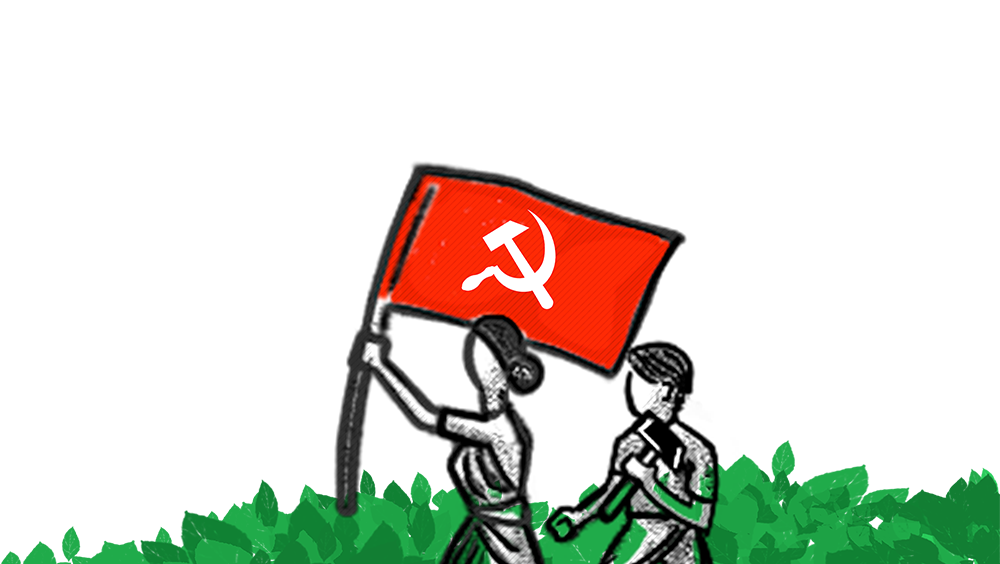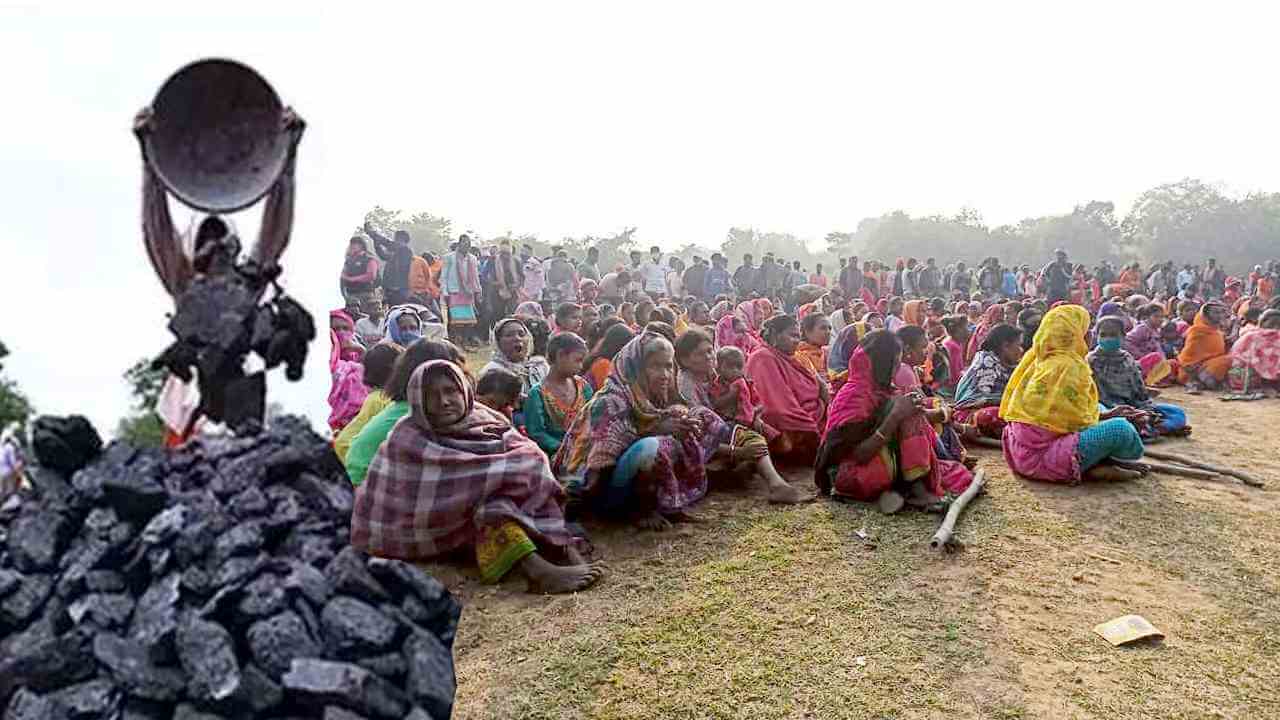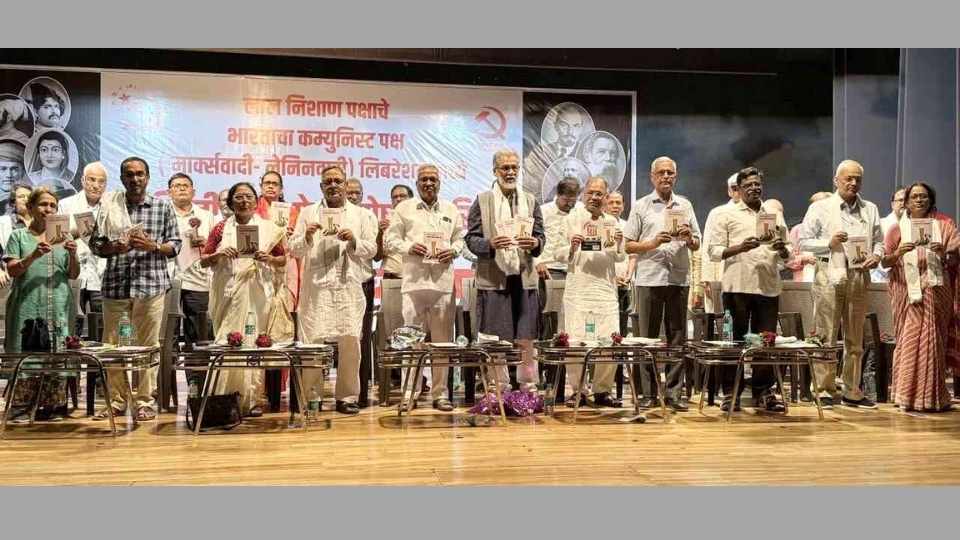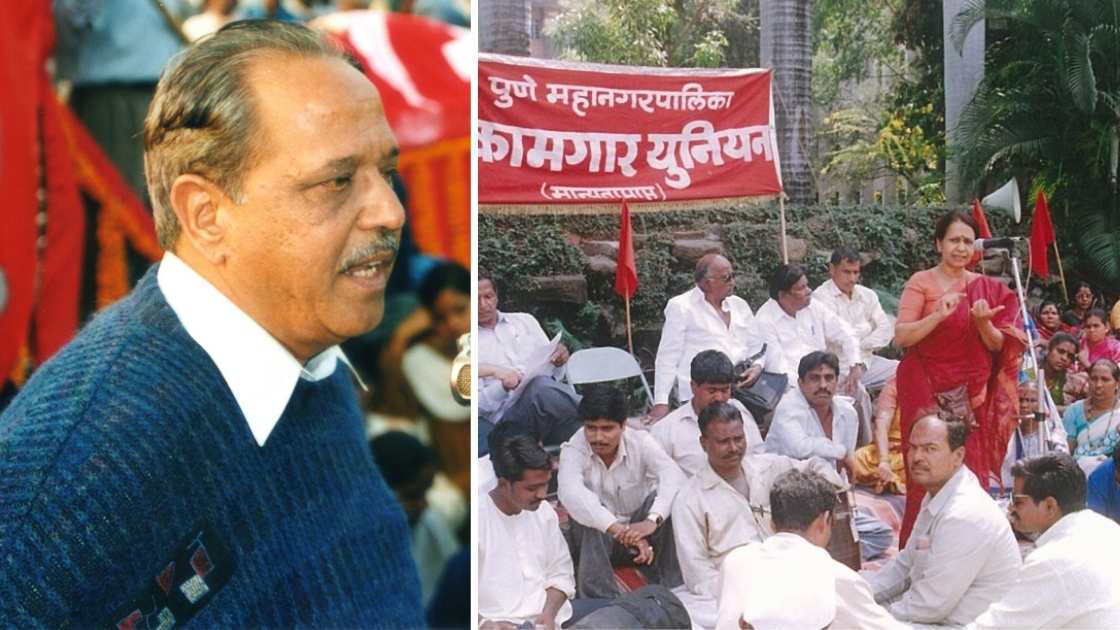On November 26, a delegation team of CPI(ML) Liberation met the people of the proposed project area in an effort to understand the opinion and thoughts of the local residents. The team visited Mohammadbazar market area, Deocha, Harinsingha, Dewanganj and Nischintipur villages and had conversations with the potentially affected villagers. The major observations are briefly described below.
1. Most of the villagers with whom the delegation team met and had a conversation with was either vehemently against the coal project or very apprehensive about it.
A large section of the locality directly depends on the stone industry (cutting stones from quarries, crushing manually/ by crushers, transporting and distributing them) in the region. There are many people who are involved in farming at one time a day and work as daily laborers in the stone industry at another time. People in Mohammadbazar market area, about ten kilometers outside the project, are afraid of coal mining for two main reasons. First, the employment opportunities that existed in the current stone industry will no longer exist with the advent of coal mining. They are worried that they will be thrown into a life of uncertain income by leaving their current land for the coal project. On the other hand, the area already suffering from pollution from crushers will further be victims of air pollution from the open cast coal mine. There are many people in Deocha village, four-five kilometers away from the project area, whose farmland falls within the proposed mining area. Most of them have small businesses in the market, their children are studying in colleges and universities, some of them are also working. They have objections in taking the job of junior constable (as proposed in the rehabilitation package) at distant locations. They have repeatedly raised the issue of long term effects of open-mined coal mines, overriding their hopes of immediate financial gain by selling the land. Villagers are also anxious as many lands will be swallowed up by the huge amount of soil and stones that have to be dumped to extract coal from such depths. They are extremely concerned about their homes and lives in the aftermath of vibration and dust storm coming from open cast mining. Citing the example of the nearby Bakreshwar Thermal Power Station and other colliery areas, they sounded worried saying "the locals will no longer be locals; the Don-Mafia rule will overpower." Even in the adjoining villages of the project area, the proposal for a mining project has come down like a nightmare. They are seeing their future full of uncertainties and misery. The people of the minority community of Dewanganj are feeling extremely endangered as many of the residents of this village do not have land deeds and hence see no positive outcome from the proposed ‘rehabilitation’ package.
2. The government rehabilitation package has not considered the real situation of the people of the area, most of them fear disaster.
The owners of the land are mainly the elders of the house and the number of family members has gradually increased in the next generation. As a result, the employment of one person (in the post of junior constable) in a family and the one-time money will put the families in a state of great insecurity. Women can't imagine living in just a 600 square ft house without having a backyard and open environment. An adivasi woman, the leader of 15 self-help groups, said "Mahila Ekta" has decided to not to give their lands. The father of the family thinks which son to nominate for the job of constable! What will be the source of income for the other children and their families! Landowners outside the project area want jobs according to their qualifications.
There were several others who pointed out that many tribal families have been living for generations having no land recorded in their name. There are many people who are living on khas land for decades. The package is supposed to give minimal to them whereas they will lose everything they have. Apart from these, a general atmosphere of distrust was observed throughout regarding the real implementation of ‘rehabilitation’ comparing to the announced one.
3. ‘Mining will not be done by force’ – the Government promised, but on the ground it has started acting differently.
Tribal population was enraged registering their disagreement about the project and unwillingness to leave their land in a meeting organized in Harinsingha village on Nov 25. Videos of the protest were spread on social media and published in various newspapers. Two days later, another video clip surfaced showing a leader of the previous day's protest ‘confessing’ their mistake, in the presence and control of a former tribal village leader who is currently associated with ruling TMC. While talking to the delegation, all the tribal leaders were afraid that their names would be transferred to the DM's office. Head of Adivasi Gaonta in Harinsingha demanded a detailed discussion on the rehabilitation package considering all stakeholders and very cautiously said that the land would be released on the basis of consensus only if the rehabilitation process is completed earlier. At the same time, he repeatedly stated that this is his personal opinion and the delegation must meet the villagers, especially women. It was the women who opposed the project in the strongest possible terms in front of the delegation. The former tribal leadership of the villages has become part of the ruling party and is completely separated from the villagers. Recently, Deocha Pachami Adivasi Janajati Bhumi Raksha Committee has been formed to organize the campaign against proposed coal project and resist the eviction.
The people of Dewanganj directly expressed concern about police surveillance and said that police vans are patrolling the neighborhood at night without any reason. Police vehicles were also seen circling the village three times while the delegation team was in the village. Earlier the people of their village were forcibly detained by the police on their way to the public hearing called by the district administration in Deocha Ganj. Shortly after leaving from Harinsingha, local police came to the delegation team and took their names and addresses.
Unwilling to enrage people with eviction which might trigger a resistance movement right now, the government has decided to start mining at several hundred acres of government land, which is available and not occupied by anyone. The government and administration has kept the villagers in complete darkness and all they just informally know is that digging will start on "government land" in the forest adjacent to Dewanganj. But when the government starts digging "its own land", the villagers are afraid that there will be no other way for them but to give their own land too.
Overall, the delegation felt that the people here are extremely anxious and concerned for their lives livelihoods and the environment. There is a deep lack of communication between the government and the people of the area. The eight-member delegation team included Ashok Mandal and Pradyot Mukherjee from Birbhum district, Surinder Singh and Krishanu Bhattacharya from West Burdwan district and Malay Tewari, Laboni Jangi, Anupam Roy and Madhurima Bakshi from Kolkata.
There are many questions related to the geological, geotechnical and environmental impact of open cast mining. As per GSI reports, this coal reserve is characterized by thick layers of coal deposit (coal seam) present within thick layer of rocks making it further difficult to mine with the currently available technology of both underground as well as opencast mining. As the top layer is very deep, a large amount of overburden is to be removed first and dumped in the adjacent area in order to get access to those coal deposits, which will actually require more land beyond the reserve and also pretty time consuming.
Reducing the use of fossil fuels in order to address climate crisis has been repeatedly called at every international environmental conference in recent times. The latest IPCC report and the COP26 in Glasgow also highlighted the dangers of temperature rise and the need to minimize burning of fossil fuel. India along with other countries have agreed to ‘phase down’ the use of coal and gradually transitioning towards renewable energy sources. Introduction of such new open cast coal project raises many pertinent questions in this context amidst efforts to combat climate challenge. Another concern is the low water retention capacity and reduced water level in the project area. Conversations with local villagers not just raised widespread concern of eviction and loss of land and livelihoods but also pointed out the danger of losing the cultural and landscape ecology of the region. It was due to the agitation of local tribal population in 2010, the stone industry owners were forced to follow some regulations to restrict air pollution which has caused severe respiratory problems including silicosis. The proposed project can further worsen the situation.
The rise of Mamta Banerjee from the Singur movement against land acquisition has made her take every foot step carefully regarding this coal project as she very well knows the tragic fate of the Left Front Govt. in Singur-Nandigram. In her eloquent speeches, she has mentioned to give 10-13 lakh rupees per bigha land and rehabilitation for the evicted people. There is no basis for such a promise yet, as there is no official gazette notification to this effect. Moreover, another reality is the agricultural laborers, sharecroppers and those who live in khas lands are always kept out from any such compensation. It has been said that this coal reserve will ensure huge power supply to meet the power shortage in the state though at present there is no shortage of electricity. PDCL is claiming in their website that the social impact study of this mega project has been completed; while the police, administration and ruling party have been trying to keep the local indigenous, minority, dalit and poor people away from public hearings. People living in the nearby mining area of Raniganj-Asansol have experienced the severe environmental impacts of open cast mining. The proposed project will evict thousands of villagers, whose traditional livelihoods are agriculture and stone-cutting. Shortly after the announcement of the Chief Minister, corporate tycoon and one of the biggest private player in coal sector Gautam Adani’s visit to Kolkata and a closed door meeting with the CM gives the hint that in future this natural resource might end up being in the hand of Adani Power instead of WBPDCL. The state administration is right now in a process of bypassing the long term impact study of this project and is keen to start mining by terrorizing and intimidating people by police and local TMC goons. Not allured by verbal assurances of so-called alternative employment and rehabilitation package, a large section of the tribal population has called for resistance against eviction in the name of ‘development’.
The government's coercion to establish expensive open cast coal mines, destroying the environment and completely evicting thousands of people from their land, livelihood and culture needs to be opposed. We demand that the state government should immediately publish the survey report on environmental and social impacts and all the information related to rehabilitation package in the white paper. In case of acquisition of land, it is necessary to declare whether the full consent of the local gram sabha and panchayat has been obtained in accordance with the Land Acquisition Act 2013. The democratic voices of West Bengal must stand with the people of proposed Deocha Pachami coal project in their struggle for existence.





